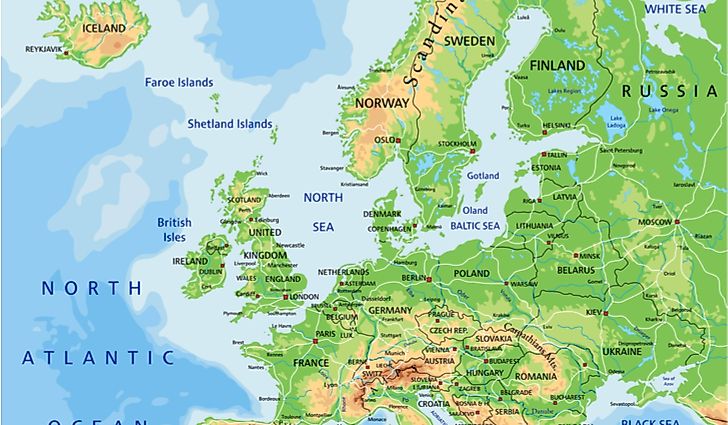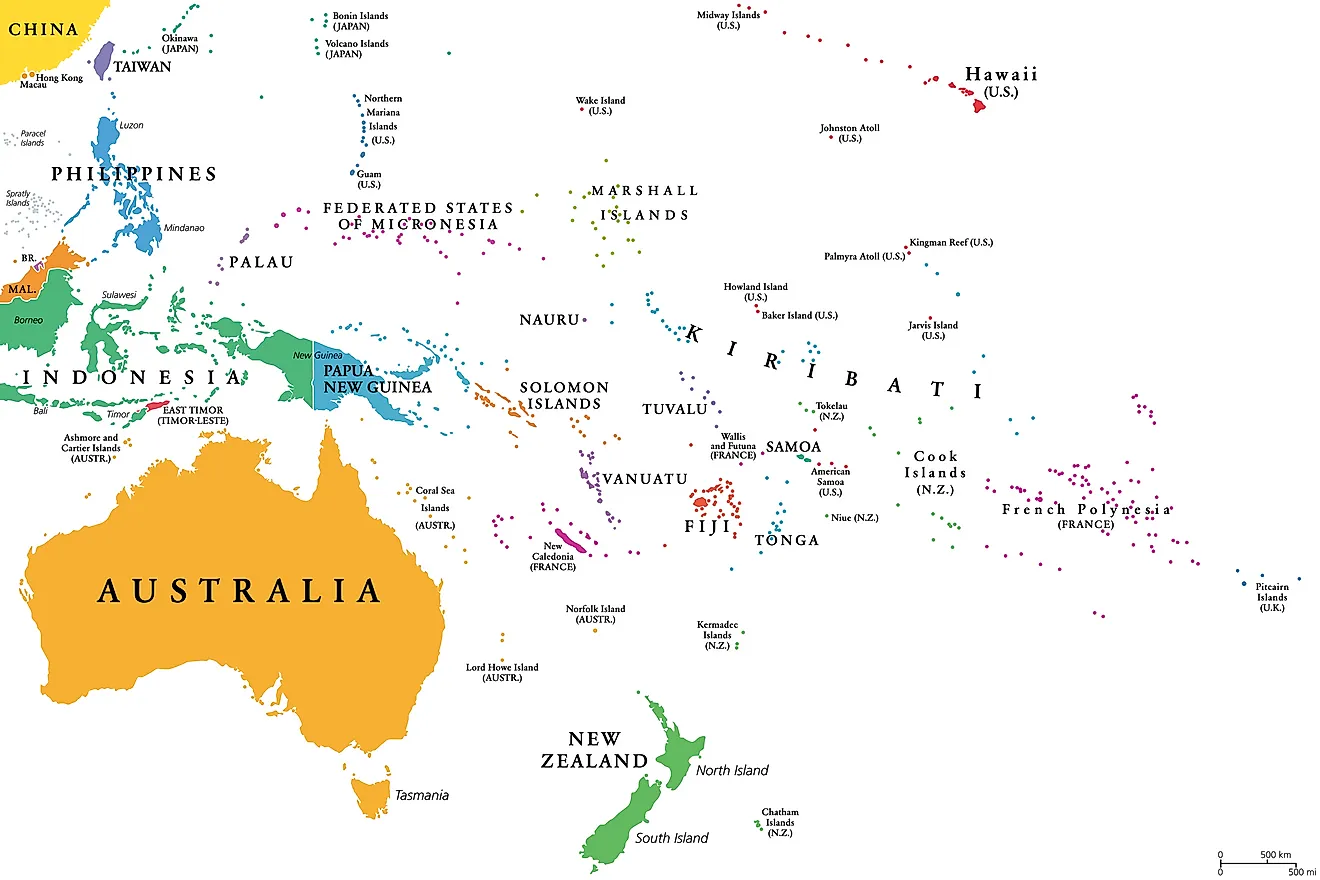Countries Without Income Tax

Income tax is a form of levy that is imposed directly on individual’s financial income by the government. Individuals are usually expected to file tax returns annually or in accordance with the tax laws in the country. The filling of tax return helps to determine whether the employees owe the government any tax. The tax is used to run the government and some of the development projects. Interestingly, there are some countries where people do not pay income tax or if they do so then it is almost as if they do not pay. The governments of these countries do not impose an income tax on their citizens for different reasons. The countries that do not pay income tax include:
13. United Arab Emirates
The United Arab Emirates is one of the most attractive oil countries in the Middle East that does not have any federal income tax. The tax-free salaries are one of the reasons why large numbers of people are drawn to work in the United Arab Emirates. However, Value Added Tax will be imposed on goods as of 2018. Despite the zero-income tax regulations, United Arab Emirates is considered to have one of the most stable economies in the world, which is strengthened by the rich oil and gas deposits in the country. It has a thriving economy in comparison to other countries in the Middle East, translating into an excellent destination for business and leisure.
12. Cayman Islands
Being a tax haven, Cayman Island has been attracting multi-national co-operations and other international subsidiary activities, to shield all their activities from being taxed. Apart from income tax, the interest and the dividends earned from companies are not taxed by the government. For this reason, Cayman has become a major hedge fund manager in the world. The law that operates taxation in the Cayman Islands has been designed in that the government receives an annual payment, which is referred to as licensing fee from offshore co-operations, instead of income tax and other forms of regular tax. The tax-free environment acts as an incentive for most of the people working in the country.
11. The Bahamas
In the Bahamas, there is no income tax. Enjoying the benefits of not paying income tax in the country depends on residence and not obtaining citizenship. It is, therefore, very easy to access income tax-free life in the Bahamas since a person can satisfy the residency requirement by simply paying for an annual Residency Permit. However, the residents are obliged to pay other forms of taxes. Bahamas is relatively inexpensive to live in. The country also hosts several banks which offer offshore accounts and savings, which are mainly used by individuals who want to pay less tax on them. However, medical services in Bahamas are still below par, with expatriates preferring to seek services in their countries or abroad.
10. Oman
Just like the other Gulf States, the taxation system in Oman is very minimal, and non-existent in some cases. Little tax is paid by the people as a residential tax. No deductions are imposed on the self-employed, who are entitled to their full salaries. However, an income tax is often imposed on expatriates. To support the social security fund, individuals who work in the private sectors are taxed 6.5% of their salaries. Other forms of taxes are very minimal in the country.
9. Bahrain
The Government of Bahrain does not directly tax on the income of individuals. Furthermore, other than income tax, which is as good as minimal, other forms of taxation are very minimal. In the recent past years, a form of tax was introduced on all the incomes earned by an individual. However, the tax is considered to be an ordinary social insurance tax and not income tax as some people have argued. This tax amounts to a total of 1% of the total earnings of all workers in the country. The 1% imposed on all workers is meant to fund a scheme for the unemployed.
8. Brunei
Income Tax in Brunei is regulated by Income Tax Act (Chapter 35) and Income Tax (Petroleum) Act (Chapter 119). No tax is imposed on personal income for employees working in the country. However, a tax is imposed on companies and other income-earning and profit marking organizations. No tax is imposed on residents of Brunei. However, the non-residents are expected to file residential tax returns to the government often. For instance, if an expatriate establishes a company in Brunei, the government receives 20% of their total income as tax. The tax charged is channeled back to the country’s economy to fund the several development projects.
7. Qatar
There is no income tax imposed on social security and salaries to the locals of Qatar. However, the salaries of the expatriates are taxed according to their taxation laws of their original nationalities. Expatriates from Ireland, Australia, South Africa, United States, United Kingdom, and Canada are taxed according to the tax laws from their respective governments. The companies in Qatar pay 10% of their total income as tax, which is payable annually. These taxes are not applicable to individual income but on company and organization income. Qatar is one of the preferred countries to work because of the well developed infrastructure and tax-free environment. It continues to attract expatriates from all over the world.
6. Bermuda
Bermuda does not impose the income tax on the employees working in the country. It also does not impose taxes on profits, income, dividends, or capital gains, has no limit on the accumulation of profit, and has no requirement to distribute dividends. However, as per the Payroll Act of 1995 of the country, the government of Bermuda decided to introduce a payroll tax which is imposed on the employers. The payroll tax levying became effective on April 2017. The employers and the self-employed people are imposed on the payroll tax.
5. Kuwait
There are no personal income taxes imposed on people working in Kuwait. Even the salaries of the expatriates working in Kuwait are not taxed. Beside the large oil reserves in the country, the income tax-free salaries attract expatriates and other foreigners to seek employment and other opportunities in the country. The revenues and income from the oil in Kuwait comfortably sustain the economy. The government does not, therefore, see a reason for imposing a tax on the salaries of individuals. However, the foreign companies established in Kuwait pay 15% of their income to the government as tax. Local companies are exempted from taxation. There have been discussions to introduce an income tax on the salaries of expatriates.
4. Saudi Arabia
Just like the other Gulf empires, the little to no income taxation in Saudi Arabia has played a major role in attracting foreigners and expatriates to the country. However, a lenient tax is imposed on the income of foreigners working in the state. The foreigners are taxed based on withholding tax regulations. The foreign companies established in Saudi Arabia are also taxed depending on the kind of business or services they are offering.
3. British Virgin Islands
Aside from income tax, taxes such as gift tax, inheritance tax, and estate tax are not charged in the British Virgin Islands. The income tax payment in the islands is as good as non-existent since it is often minimal or not charged at all. The tax was reduced to zero after the introduction of the payroll tax. British Islands prefer to be considered as a modern offshore financial center. The country has been included in the list of major tax havens in the world due to the absence of most tax in the territory. To stand in for the little or non-existent taxes, the offshore companies incorporated in the British Virgin Islands pay an annual license pay.
2. Andorra
Andorra is not only income tax-free but is also a value added tax-free country. In the recent past, the European Union has been pressuring Andorra to start imposing an income tax and value-added tax. Due to the pressure, Andorra has recently moved from being almost tax-free to imposing very lenient tax on income earners and other ventures to satisfy the EU. Currently, the country imposes a small tax for residential purposes. Because of the lenient tax laws in Andorra, many Europeans from the neighboring countries tend to do their shopping in Andorra. It is significant to note that unlike most tax havens in the world, Andorra does not provide for an easy putting of offshore industries. Besides being a tax-free haven, Andorra is also a scenic spot due to its location.
1. Monaco
Taxes in Monaco are as good as non-existent. The residents of Monaco are charged very little or no tax at all. Income tax in Monaco was abolished in 1869. Thus, the residents of Monaco are not expected to pay any part of their personal income to the government. However, residents of Monaco with a French nationality are required to pay income tax. The law used to pay tax by the French nationals is the same as the tax law used in France. After they are taxed, the amount is directly paid to the France Government for the country’s development.







